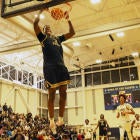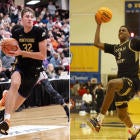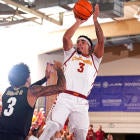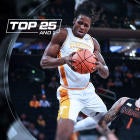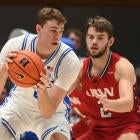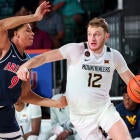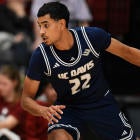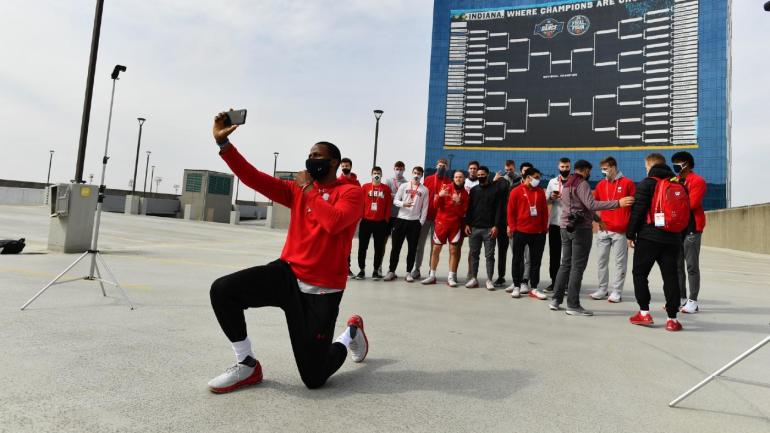
If first impressions are indeed the most important, the initial meal for NCAA Tournament teams should've been splendid. I'm talking St. Elmo delivered to everybody's room. Sizzling filets. Loaded baked potatoes. Mac n' cheese. Roasted asparagus. Shrimp cocktails. The works. Make it awesome. Make it memorable.
Perhaps then the players would've been happy.
Instead, it was boxed lunches.
Or fast food.
I actually know one team that had a warm breakfast served cold with no utensils. So they didn't even have forks to eat their chilly eggs. And that's when resentment set in. Soon thereafter, players started publicly complaining about the fact that the NCAA is on the verge of cashing a $900 million check because of an event they'll compete in for no compensation, which led to complaints about the fundamentally unfair name, image and likeness rules that remain in place, which led to a hashtag (#NotNCAAProperty) trending on Twitter that became the biggest topic in the sport 24 hours before the start of the NCAA Tournament.
That's not ideal.
By Wednesday night, various players from 15 different teams -- among them Rutgers' Geo Baker, Iowa's Jordan Bohannon, and Michigan's Isaiah Livers -- had released a statement calling for a list of demands to be met, most notably that name, image and likeness rules be changed no later than July 1. To be clear, there is nothing in the statement about the possibility of boycotting the NCAA Tournament. So you'll almost certainly be able to watch games Thursday night, if you want. But having all of these issues come to the forefront of the sport on the eve of college basketball's biggest event was undeniably a bad look for the NCAA. And the sad part is that it probably could've been avoided so easily.
The players want to be in Indianapolis. They want to play in this NCAA Tournament. That's why they've endured a season unlike any other and played a contact sport -- with constant stops and restarts -- during a global pandemic that's killed more than 535,000 Americans. That's why they've worn their masks, stayed away from parties, eliminated personal relationships, and largely lived with just each other. They want to compete and weren't asking for money to do so. But when they arrived in Indianapolis and saw subpar food options, and limited entertainment options, they understandably became frustrated. And by the time that frustration made its way to social media, the student-athletes weren't complaining about food anymore as much as they were highlighting the outdated and ridiculous name, image and likeness rules that limit them in ways that literally no other college students are limited.
I'll let Geo Baker take it from here.
The NCAA OWNS my name image and likeness. Someone on music scholarship can profit from an album. Someone on academic scholarship can have a tutor service. For ppl who say “an athletic scholarship is enough.” Anything less than equal rights is never enough. I am #NotNCAAProperty
— Geo Baker (@Geo_Baker_1) March 17, 2021
He's right, you know?
Twenty-five years ago, I was on a journalism scholarship in college while I also did freelance work for various newspapers. I had a skill and I profited from it. And nobody even blinked. So the idea that student-athletes still don't have the same rights I had literally a quarter-century ago is absolutely shameful. And the NCAA continuing to do nothing on the name, image and likeness front is unsurprising but disappointing.
It'll only be addressed when the NCAA is legally forced to address it.
That's the truth.
In the meantime, the NCAA should've at least spent whatever necessary to make the controlled-environment experience in Indianapolis as awesome as possible. Instead of generic boxed lunches, it should've been Harry & Izzy's. Instead of puzzles in rooms, it should've been PS5's. Because when you're exploiting student-athletes to the tune of $900 million, it's best and wise to at least keep them happy.
The NCAA fell short of that very low bar.
Yeah, it saved some money.
But it also paid a price.









